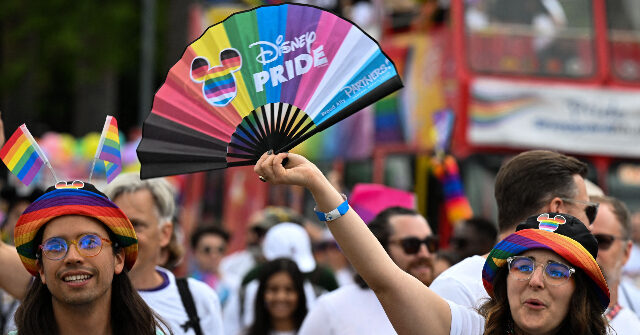Backlash is intensifying against the Walt Disney Company following its controversial decision to eliminate a transgender storyline from the anticipated Pixar series “Win or Lose,” slated for release on Disney+ in February. The removal of a transgender teen character has ignited outrage, culminating in a petition that has rapidly garnered thousands of signatures advocating for the reversal of this decision. The petition characterizes Disney’s action as a “cowardly, spineless decision” and suggests that the company is sacrificing LGBTQ+ representation for the sake of appeasing a conservative demographic, which many perceive as part of a larger attempt to prioritize monetary gains over inclusivity. The growing dissent underscores the significance of representation in children’s media.
The petition emphasizes that Disney’s move represents a betrayal of the values it previously espoused regarding LGBTQ+ inclusion. With nearly 5,500 signatures amassed, the petition reflects a broader sentiment among many advocates and supporters of LGBTQ+ rights who believe that the entertainment giant is retreating from its commitment to diverse storytelling in family content. The critique not only questions the motivations underlying Disney’s decisions but also challenges the very essence of representation for marginalized voices, particularly within a medium frequented by young audiences.
In response to the backlash, Disney has defended its choice, stating that the company recognizes parents’ preferences for discussing certain topics with their children on their terms and timelines. This explanation has been perceived by some as an obfuscation of its prior efforts to advocate for inclusivity within its programming. Interestingly, this statement seems to contradict the trajectory of Disney’s recent initiatives that have actively pushed for greater representation of gender non-conformity within its children’s media. The shift from a more inclusive direction raises questions about the company’s core values and its commitment to social responsibility in its content.
Historically, Disney has embraced LGBTQ+ themes in its programming. For instance, the 2022 Disney+ series “Baymax” featured a transgender character who provides advice on personal hygiene products, reflecting a marked focus on contemporary issues and inclusivity. Similarly, in the Marvel series “Loki,” the title character’s gender fluidity is explored, reinforcing the company’s earlier commitment to representing diverse identities. Furthermore, Disney’s Lucasfilm subsidiary recently cast transgender actors in various series, showcasing a dedication to casting diversity. However, the cancellation of these series has left fans and advocates wondering whether the company is genuinely committed to its initiatives or simply responding to market pressures.
The juxtaposition of Disney’s prior representations of LGBTQ+ characters with the removal of significant storylines creates a conflict that prompts widespread concern about the company’s current direction. Activists argue that the retraction of the transgender character from “Win or Lose” is not just a storytelling decision, but rather a retreat from the progressive values that the company had previously embraced. This inconsistency may alienate a segment of its audience that values authentic representation, leading to calls for boycotts and boycotts against the corporation, further exacerbating the debate around corporate responsibility.
In conclusion, the ongoing backlash against Disney highlights a critical conversation regarding the role of representation in children’s media and the responsibilities of corporations in reflecting societal values. The tension between market demands and the commitment to diverse voices in storytelling persists, with advocates urging Disney to reassess its approach. As the landscape of family-oriented entertainment evolves, the company’s decisions will undoubtedly continue to receive public scrutiny, shaping not only its own identity but also influencing broader discussions surrounding inclusivity and representation in the media. The outcome of this dialogue will significantly impact how future generations consume media and understand identity within the context of their own lives.

